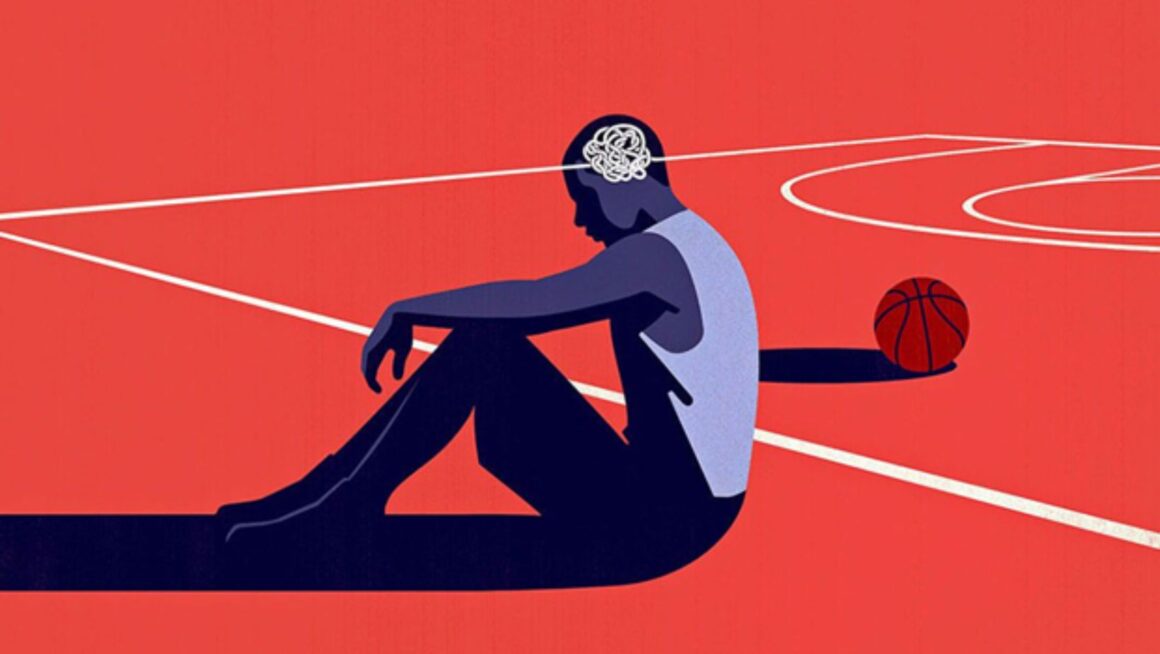Competitive sports are often celebrated for physical prowess and achievements, but the mental challenges athletes face is just as significant. This article delves into the psychological aspects of sports, highlighting the mental endurance required to excel at the highest levels. Every statistic, name, and detail are included to provide a comprehensive understanding of the mental marathon that athletes undergo.
The Pressure of High Stakes
The Olympics: A Global Stage
The Olympics represent the pinnacle of athletic competition, with athletes from around the world vying for glory. The mental pressure at the Olympics is immense, as athletes are aware that their performance will be watched by millions. For example, Simone Biles, a four-time Olympic gold medalist, withdrew from several events at the Tokyo 2020 Olympics to focus on her mental health. This decision highlighted the tremendous psychological pressure athletes face, even those at the top of their game.
The rise of sports betting has added another layer of pressure for athletes. With platforms offering Deposit Match Bonus Offers, the stakes are higher than ever for athletes whose performances can directly influence betting outcomes. The financial implications and public scrutiny can add significant mental strain, requiring athletes to maintain focus and composure under pressure.
The Burden of Expectations
Michael Phelps: The Weight of Gold
Michael Phelps, the most decorated Olympian with 23 gold medals, has openly discussed the mental health struggles he faced throughout his career. Despite his success, Phelps battled depression and anxiety, exacerbated by the immense expectations placed upon him. His story underscores that even the most successful athletes are not immune to mental health challenges.
Tennis star Naomi Osaka made headlines in 2021 when she withdrew from the French Open, citing mental health concerns. Osaka, a four-time Grand Slam champion, faced intense scrutiny and pressure from the media and public. Her decision to prioritize her mental well-being over competition brought much-needed attention to the importance of mental health in sports.
Coping with Injuries
The Psychological Impact of Physical Setbacks
Injuries are an inevitable part of sports, but their psychological impact can be profound. Athletes not only deal with physical pain but also the mental strain of recovery and the fear of re-injury. For instance, basketball star Derrick Rose’s career has been marred by injuries, leading to significant mental challenges. Rose’s resilience in overcoming these setbacks highlights the mental toughness required to return to elite performance levels.

NFL quarterback Alex Smith’s comeback from a life-threatening leg injury is a testament to mental fortitude. After suffering a compound fracture in 2018, Smith underwent 17 surgeries and faced the possibility of amputation. His return to the field in 2020, earning the NFL Comeback Player of the Year award, displayed his extraordinary mental and physical resilience.
Managing Performance Anxiety
The Role of Sports Psychologists
Sports psychologists play a crucial role in helping athletes manage performance anxiety. Techniques such as visualization, mindfulness, and cognitive-behavioral therapy (CBT) are employed to enhance mental toughness. For example, Dr. Michael Gervais, a renowned sports psychologist, has worked with athletes like NFL quarterback Russell Wilson, helping them achieve peak performance by addressing mental barriers.
LeBron James, one of the greatest basketball players of all time, has openly discussed using meditation and visualization to manage performance anxiety. James’ ability to remain calm under pressure, as demonstrated by his numerous clutch performances, underscores the importance of mental training in achieving athletic success.
The Role of Support Systems
Family and Friends
The support of family and friends is vital for athletes’ mental well-being. Olympian Allyson Felix, a six-time gold medalist, has credited her family’s support for her success. Felix’s ability to balance motherhood and an elite athletic career highlights the importance of a fanatical support system in managing the pressures of competitive sports.

Effective coaching goes beyond physical training; it involves providing emotional and psychological support. Legendary basketball coach Phil Jackson, known for his comprehensive approach, emphasized the importance of mental well-being in his coaching philosophy. Jackson’s success with teams like the Chicago Bulls and Los Angeles Lakers illustrates how psychological support can enhance athletic performance.
The Stigma Around Mental Health
Breaking the Silence
Despite growing awareness, the stigma around mental health in sports persists. Athletes often fear that admitting to mental health struggles will be perceived as a sign of weakness. Efforts by organizations like the National Basketball Players Association (NBPA) to provide mental health resources and support are crucial in addressing this stigma. High-profile athletes speaking out, like Kevin Love and DeMar DeRozan, have helped to normalize discussions around mental health.
Sports institutions are increasingly recognizing the need for mental health support. The NCAA, for example, has implemented mental health best practices and resources for student-athletes. These initiatives aim to provide comprehensive support, ensuring that athletes’ mental well-being is prioritized alongside their physical training.
The Importance of Mental Recovery
Mental Rest and Recovery Strategies
Just as physical recovery is essential, mental recovery is crucial for sustained performance. Techniques such as mindfulness meditation, adequate sleep, and leisure activities are vital for mental recuperation. Olympic swimmer Katie Ledecky, who has won seven gold medals, emphasizes the importance of mental rest in her training regimen. Ledecky’s approach highlights the need for balance between intense training and mental relaxation.
Burnout is a significant risk for athletes who constantly push their mental and physical limits. Strategies to prevent burnout include periodization in training, psychological support, and ensuring a healthy work-life balance. Professional cyclist Lizzie Deignan has spoken about the importance of taking breaks and maintaining mental health to avoid burnout. Her success in balancing career and personal life serves as a model for other athletes.
Conclusion
Acknowledging the Mental Marathon
The mental challenges faced by athletes are as demanding as their physical endeavors. Recognizing and addressing these challenges is crucial for achieving and sustaining peak performance. From managing performance anxiety to coping with injuries and balancing expectations, athletes’ mental health is a vital component of their overall success.
As awareness of mental health in sports continues to grow, so does the support available to athletes. The integration of mental health resources, technological advancements, and a shift in cultural attitudes are helping to create a more integrated approach to athlete well-being.
The mental marathon of competitive sports is an ongoing journey, one that requires resilience, support, and a proactive approach to mental health. By understanding and addressing these challenges, the sporting community can ensure that athletes are equipped to excel not just physically, but mentally as well.



